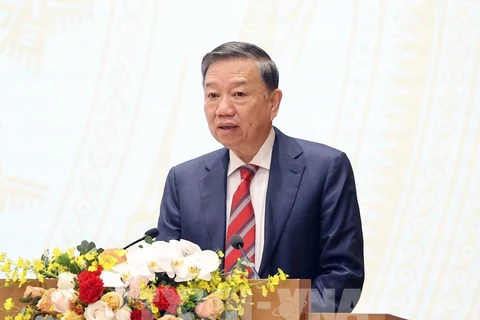 A view of Formosa Ha Tinh, a foreign-invested company which reported a huge loss in 2019 (Photo: cafef.vn)
A view of Formosa Ha Tinh, a foreign-invested company which reported a huge loss in 2019 (Photo: cafef.vn) According to the ministry’s recent report to the Prime Minister analysing financial reports of FDI companies, among a total of 25,054 FDI enterprises in Vietnam as of the end of 2019, 22,603 had reported adequate data for analysis.
Statistics showed that FDI enterprises had a total revenue of 7.1 quadrillion VND in 2019, 720 billion VND higher than the previous year, with a total pretax profit of 387 trillion VND.
In 2019, 9,494 enterprises, or 45 percent, reported profits worth around 518.5 trillion VND in total, representing an increase of 18 percent against the previous year.
The top destinations for FDI were HCM City, Hanoi, Thai Nguyen, Bac Ninh, Binh Duong and Dong Nai.
The group of FDI companies from Europe had the highest profitability while those from the Republic of Korea, Japan, Singapore, Taiwan and the British Virgin Islands had reasonable profitability.
Meanwhile, Hong Kong and China, which were in the top 10 biggest FDI investors in Vietnam, had low profitability.
According to the Ministry of Finance, Samsung Electronics Vietnam (SEV Bac Ninh) and Samsung Electronics Thai Nguyen (SEV Thai Nguyen) were the two largest enterprises among 967 operating in electronics with efficient operation in Vietnam.
SEV Bac Ninh and SEV Thai Nguyen accounted for 48 percent of the total revenue of FDI enterprises in the electronics industry. They reported a total pre-tax profit of 85.91 trillion VND.
At the other end, 12,455 FDI enterprises, or 55 percent, reported losses worth 131.445 trillion VND in 2019.
The problem was that the revenue of loss-making FDI enterprises in 2019 increased by 12.7 percent against the previous year to 846.8 trillion VND.
Taiwan-invested Hung Nghiep Formosa Ha Tinh Steel Company, with had estimated assets of 286.8 trillion VND, reported an aggregated loss worth about 25.38 trillion VND in 2019.
In 2019, Formosa Ha Tinh reported a revenue of 72 trillion VND, a loss of more than 11.5 trillion VND which was more than four times higher than 2018. The company paid a modest sum of 51.6 billion VND to the State budget in 2019.
Sectors with FDI enterprises reporting increasing loss were steel and iron production, oil and gas, petrochemical production, telecommunications and software.
Notably, the finance ministry’s report showed that 14,822 FDI enterprises reported aggregated losses for many years with a total loss worth about 520.7 trillion VND.
Besides positive impacts of FDI brought, the ministry said that there were problems.
The ministry said that the FDI inflow mainly focused on Southeastern and Red River Delta provinces while the northern mountainous and Central Highlands provinces were not very attractive to FDI, which demonstrated that the Government’s policies to encourage the investment flow into difficult areas did not work as effectively as expected.
In addition, the capital efficiency of FDI enterprises remained low. FDI enterprises’ contribution to the State budget was not commensurate with the incentives they enjoyed with a majority of FDI enterprises reporting losses over many consecutive years.
Transfer pricing also occurred in some firms which reported losses for many years, but kept expanding production and business with increasing revenue.
In order to attract high-quality FDI flow, the finance ministry proposed incentive policies based on investment scale and location should be revised.
It was also necessary to improve the legal system and the coordination mechanism among local and central authorities in licensing and managing FDI projects.
The inspection against transfer pricing should also be increased, the ministry said.
The latest updates of the Ministry of Planning and Investment showed that Vietnam attracted 28.5 billion USD worth of FDI from January 1 to December 20, a drop of 25 percent against 2019./.
VNA























